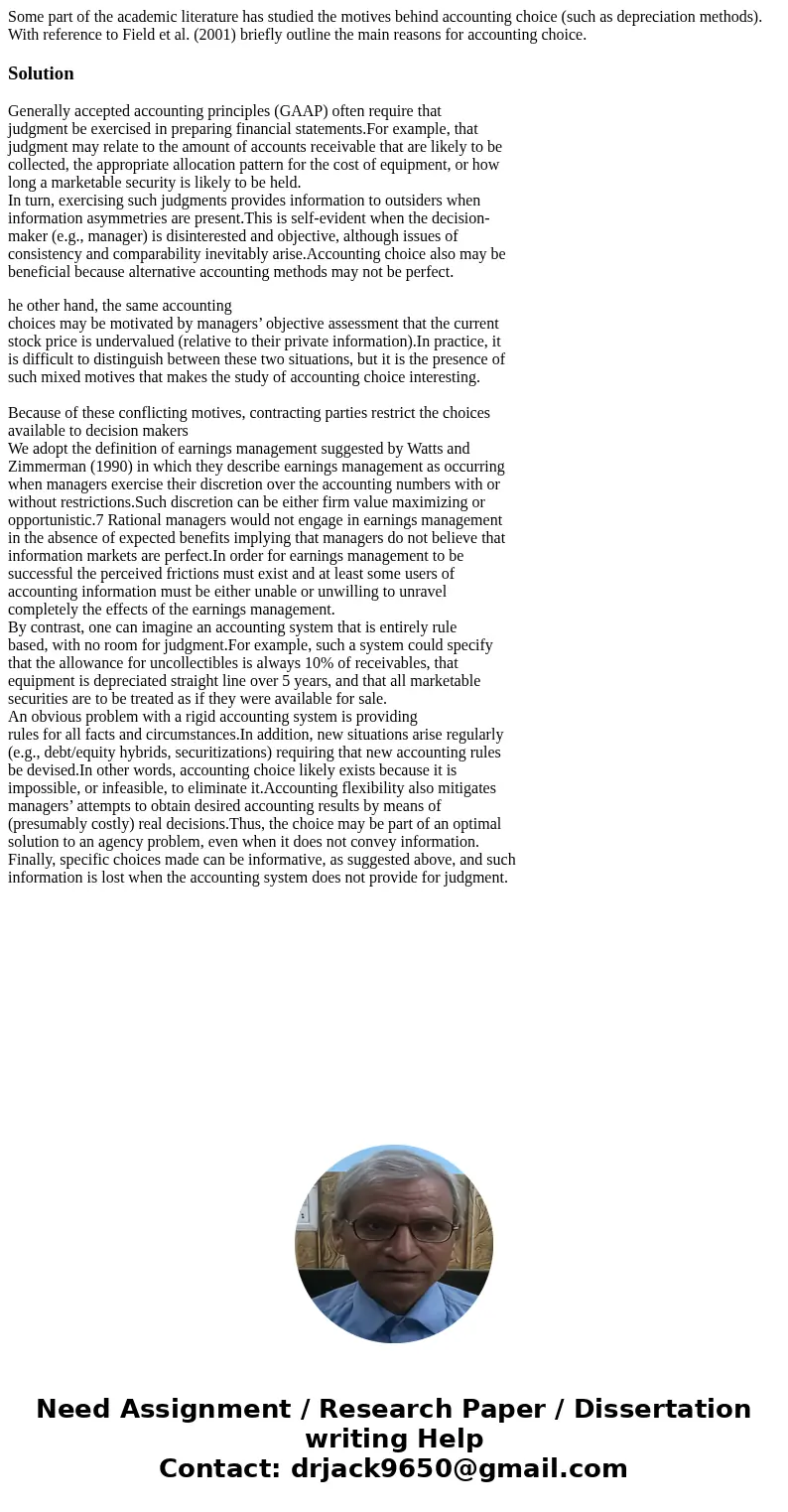Some part of the academic literature has studied the motives
Some part of the academic literature has studied the motives behind accounting choice (such as depreciation methods). With reference to Field et al. (2001) briefly outline the main reasons for accounting choice.
Solution
Generally accepted accounting principles (GAAP) often require that
judgment be exercised in preparing financial statements.For example, that
judgment may relate to the amount of accounts receivable that are likely to be
collected, the appropriate allocation pattern for the cost of equipment, or how
long a marketable security is likely to be held.
In turn, exercising such judgments provides information to outsiders when
information asymmetries are present.This is self-evident when the decision-
maker (e.g., manager) is disinterested and objective, although issues of
consistency and comparability inevitably arise.Accounting choice also may be
beneficial because alternative accounting methods may not be perfect.
he other hand, the same accounting
choices may be motivated by managers’ objective assessment that the current
stock price is undervalued (relative to their private information).In practice, it
is difficult to distinguish between these two situations, but it is the presence of
such mixed motives that makes the study of accounting choice interesting.
Because of these conflicting motives, contracting parties restrict the choices
available to decision makers
We adopt the definition of earnings management suggested by Watts and
Zimmerman (1990) in which they describe earnings management as occurring
when managers exercise their discretion over the accounting numbers with or
without restrictions.Such discretion can be either firm value maximizing or
opportunistic.7 Rational managers would not engage in earnings management
in the absence of expected benefits implying that managers do not believe that
information markets are perfect.In order for earnings management to be
successful the perceived frictions must exist and at least some users of
accounting information must be either unable or unwilling to unravel
completely the effects of the earnings management.
By contrast, one can imagine an accounting system that is entirely rule
based, with no room for judgment.For example, such a system could specify
that the allowance for uncollectibles is always 10% of receivables, that
equipment is depreciated straight line over 5 years, and that all marketable
securities are to be treated as if they were available for sale.
An obvious problem with a rigid accounting system is providing
rules for all facts and circumstances.In addition, new situations arise regularly
(e.g., debt/equity hybrids, securitizations) requiring that new accounting rules
be devised.In other words, accounting choice likely exists because it is
impossible, or infeasible, to eliminate it.Accounting flexibility also mitigates
managers’ attempts to obtain desired accounting results by means of
(presumably costly) real decisions.Thus, the choice may be part of an optimal
solution to an agency problem, even when it does not convey information.
Finally, specific choices made can be informative, as suggested above, and such
information is lost when the accounting system does not provide for judgment.

 Homework Sourse
Homework Sourse